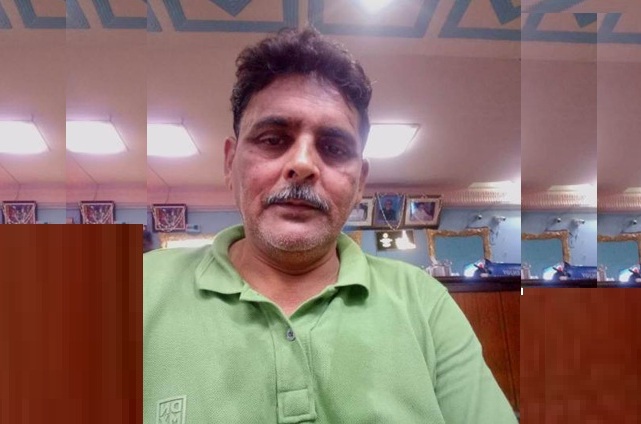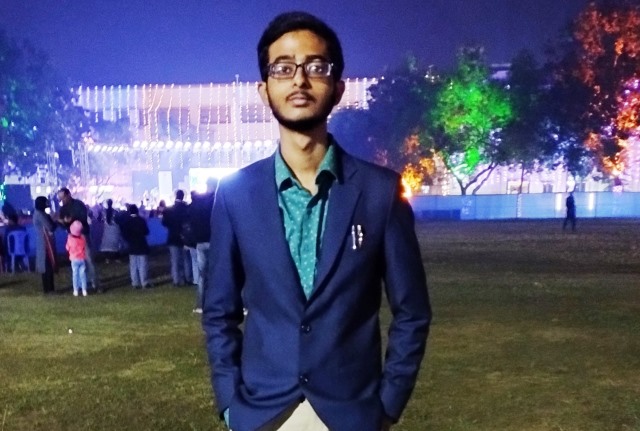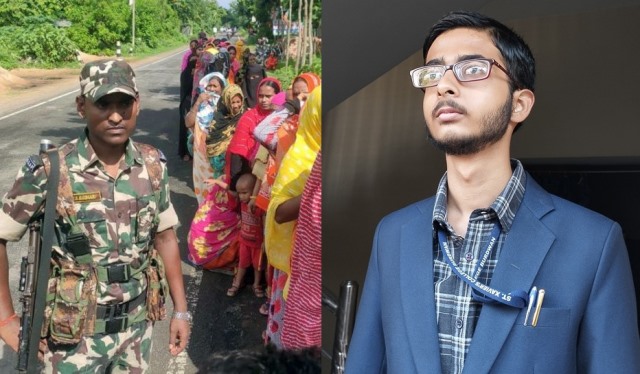Biplab Mukherjee, is human rights activist based in Kolkata, explains the reasons behind violence in West Bengal over Waqf Amendment Act. His views
There are two reasons for the ongoing communal violence in Murshidabad. One, an unorganised mob of the minority community, agitated by the Waqf Amendment Act, coming on the streets, and two, the meticulous and planned strategy of the Hindutva forces.
Although the ongoing communal violence is confined to the north side of Murshidabad district in West Bengal, adjacent to Malda, the Hindutva propaganda apparatus, including in some sections of the media, has hyped it a lot. This are the border towns near Bangladesh border.
According to the census of 2011, Murshidabad consists of 66.27 per cent Muslim population. Hindus are a minority here. A large number of Hindus and Muslims in this district live mostly in ghettos. Some parts of this district was once Pakistan’s territory for three days in 1947; later, they joined India on August 18, 1947.
The border district has had its history of riots and mutual distrust between the communities. However, after independence, the political hegemony of communist forces and the Congress had mitigated the communal tension. Nevertheless, the emergence of Right-wing Hindutva nationalism and hate politics has stirred up tension in the region.
In the last decade, dozens of cases have been reported which shows that Hindutva radicals are staging fake incidents in order to aggravate social division, polarisation, and violence. One of the alleged conspirators, infamous for his anti-Muslim hate speech, Kartik Maharaj, has been awarded the Padmashree by the government of India. He hails from Murshidabad. It indicates the importance of the district in the eyes of the ruling party in Delhi.
ALSO READ: ‘Waqf Act Was Pushed Without Addressing Muslims’ Concerns’
Trinamool Congress, the ruling party in West Bengal, has played a dual role. On the one hand, they represent themselves as the saviors of Muslims in the state, thus, garnering minority and secular Hindu votes, while propagating the fear of the BJP. This is their main strategy.
Meanwhile, they have been giving tickets to prominent RSS activists, such as Debabrata Mazumder, and others. They seem to be tacitly pushing the Hindutva agenda by celebrating ‘politicised Hindu festivals’ which are totally alien to Bengali culture, such as Ramnavami, Hanuman Jayanti, etc.
Incidentally, a militant and violent form of Ramnavami has been manufactured by the BJP and its front organisations, thereby vitiating the atmosphere. This recent phenomena has happened for the first time in Bengal. Besides, it has been observed by some activists, in recent times, that the influence of Hindutva radicalism in some sections of the police force seems to be increasing. If true, this, too, is disturbing.
Usually, the police play a responsible role to combat polarising and violent situations. But, sometimes, their role apparently seems fishy.
In Murshidabad, the roles of some officers have been found to be suspicious by political observers and citizens. Some protesters, who participated in the anti-Waqf bill demonstration, have claimed that they had returned home after the protest, but they had no clue who had set fire to the vehicles.
There are allegations against the police that they opened fire on protesters unnecessarily; this further agitated the mob. There are some reported cases of looting of the minority houses — by certain individuals wearing khaki and camouflaged uniforms. These cases must be impartially investigated and the culprits should be punished.
(The narrator has worked for several NGOs, especially in the India-Bangladesh bordering districts of West Bengal, on cases related to custodial torture, extra-judicial killings, forced migrations, river erosion, justice and poverty)
As told to Amit Sengupta


